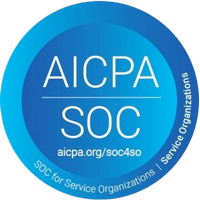Every year, graduation season fills the air with optimism and opportunities. These graduates have spent thousands of hours honing their skills, and now they’re finally ready to join the workforce. But how many of them are coming to long-term care (LTC)? Unfortunately, not enough.
At least, not enough to fill the staggering number of open positions in the LTC industry right now. In fact, the Bureau of Labor Statistics reports that nursing homes lost 14% of their staff between February 2020 and July 2022. And the next generation of graduates isn’t rushing to fill the gaps.
Is hiring new graduates hopeless? Not at all. With the right hiring and marketing strategy, long-term care employers can attract and retain new graduates.
Why Is Hiring in Long-Term Care so Difficult?
The difficulty of hiring in long-term care can’t be condensed down to one factor. But one major challenge is the fact that many potential candidates don’t even consider that they could have long and fruitful careers in LTC. Without this awareness, it’s hard to attract new candidates—especially recent graduates—to long-term care, and the candidates you do have may readily leave for another sector of healthcare.
If you’re recruiting without showing candidates how they can have a successful career in long-term care, you’re just putting a bandaid on the issue of candidate shortage. But if you make long-term careers enticing to new graduates (and other candidates), you can be a part of a broader solution—while also filling your open positions.
Here’s how you can market long-term careers to the next generation.
1. Partner With Local Schools
Some students may not be aware that they’re qualified for an entry level position in long-term care. You can help spread the word by connecting with local high schools, colleges, and universities, and by offering information on long-term careers.
Remember to tailor your presentation to the population that you’re approaching. For example, information about CNAs is particularly helpful to those without prior medical experience, including high school and college students. Give information about roles that students could step into immediately, such as CNA positions, as well as roles that they could study for in the future. You want to both show soon-to-be graduates the jobs they could take on immediately and inspire them to explore career paths for the future. In addition, choose presenters who’ve been in similar situations to their audience. They’ll be better equipped to answer questions and offer examples of realistic career paths.
When you’re partnering with local schools, you don’t have to focus exclusively on selling entry-level positions. It’s also worth your time to speak with students who are already training for a career in medicine. Many of these students may not be aware of the fruitful careers that await them in long-term care specifically. You can even recruit promising students before they’ve graduated, so you get a chance at bringing on the best talent before your competitors.
2. Host Community Information Sessions
Engage recent graduates—and anyone looking for a new career—by inviting them to a talk about long-term care careers. These talks can be conducted by your employees and outside speakers who you hire for this purpose. An event like this can help you reach new community members and bolster your reputation as a resource for career development and information.
Not sure what to talk about? Here are a few ideas.
- Dive into a specific position. What exactly does, for example, an LPN do? What is rewarding about this career? How do LPNs become qualified for their positions? What do their day-to-day lives look like?
- Hear from a long-term employee. Have any long-term employees who’d be willing to describe their experience? Invite them to speak to new graduates, demonstrating that it’s more than possible for an employee to have a fruitful career in your community. Ask them to talk about what they love about their job and their “why” for going into work every day.
- Talk about the state of the industry. Discuss the current state of the long-term care industry. While it may feel counterintuitive to talk about issues like nursing shortages in long-term care, a frank discussion can actually help new graduates connect to the mission. Use the shortages to help them understand that their work will be uniquely valued, and that every day they show up will matter. If you do choose to talk about shortages, make sure you balance it out with all the good news happening in senior care today.
Consider hosting these talks in one of your own locations, so new graduates get a feeling for the place they may be working. If you don’t have a good place to host people (without disrupting day-to-day affairs), look for an existing speaker series in your area, and reach out to see if you can participate. Alternatively, you can rent a venue or partner with a local business to acquire space for your talks.
Remember to compensate your employees appropriately for speaking, and make this kind of opportunity purely voluntary.
3. Market Your In-House Training
In-house training programs (particularly for roles with relatively light barriers to entry, such as CNAs and HHAs) can help you connect with recent graduates and other job seekers who might not have healthcare experience.
An excellent in-house training program can also drive interest in long-term care careers through word of mouth. But word of mouth often isn’t enough. Promote your in-house training programs with a combination of digital and traditional marketing methods.
Even if you have incredible in-house training programs, they won’t help you recruit if no one’s heard of them. Here are some of the best strategies for marketing your training opportunities.
- Posters, flyers, and more. Reach out to local schools to see if you can hang flyers in the hallways. This is a great way to reach soon-to-be graduates, and let them know about your in-house training programs.
- Tap into your employee network. Your employees may know graduates and prospective candidates. Ask your employees to refer the students in their lives to your career events.
- Include QR codes. By adding QR codes to your posters, you make it easy for potential candidates to quickly download all the information they need about your open roles, and save job posts on their phones for later.
- Pair your in-person events with attractive take-homes. Have an event? Pair it with branded swag so graduates and students have something to remember you by. School supplies, such as pens and study lights, can be a great gift for current students.
Better Hiring With Apploi
Attracting the next generation of long-term care workers is a challenge, but you don’t have to go it alone. Apploi’s suite of hiring tools can help you market your careers and gain deep insight in healthcare-specific hiring strategies and best practices. Connect with us and schedule a demo today.
![Recruiting New Graduates for Long-Term Care [3 Steps]](https://eggi5ktv3g4.exactdn.com/wp-content/uploads/2023/05/iStock-854184878.jpg?strip=all&lossy=1&ssl=1)




